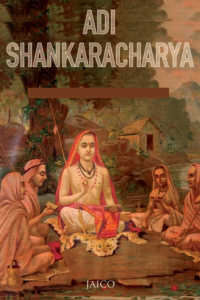Adi Shankaracharya: The Philosopher of Advaita Vedanta
Adi Shankaracharya was a monumental figure in Indian philosophy and spirituality. Born in 788 CE in Kerala, he is best known for consolidating the doctrine of Advaita Vedanta, which emphasizes the non-duality of the soul and the universe. His teachings continue to shape Hindu philosophy and spirituality even today.
Early Life and Spiritual Journey
Adi Shankaracharya was born into a Brahmin family and showed spiritual inclination from a very young age. He is said to have mastered the Vedic scriptures before he turned 8. His early experiences with different teachers and his journey across India to debate and establish his views on Advaita Vedanta are legendary.
Advaita Vedanta Philosophy
At the core of Shankaracharya’s philosophy is the concept of Advaita, meaning “non-duality.” According to this belief, the ultimate reality, Brahman, is singular and all-encompassing, and the individual soul (Atman) is identical to this absolute reality. The perceived separation between the soul and the universe is due to ignorance (Avidya), and liberation (Moksha) comes through the realization of this oneness.
Shankaracharya’s Major Contributions
- Philosophical Works: Shankaracharya wrote several key texts such as Brahma Sutra Bhashya, Bhagavad Gita Bhashya, and Upanishad Bhashyas, in which he expounded on Advaita Vedanta and addressed various philosophical dilemmas.
- Revival of Hinduism: In a time when Hinduism was fragmented and influenced by various other ideologies, Shankaracharya helped unify the religious thought through his emphasis on the importance of Vedic knowledge.
- Establishment of Monastic Orders: He established four major monastic centers, or mathas, in India—at Sringeri, Dwarka, Puri, and Badrinath—which played a central role in preserving and spreading his teachings.
Key Teachings of Adi Shankaracharya
- Maya: He explained the concept of Maya, or illusion, which suggests that the world we perceive is not the ultimate reality. The material world is transient, and only Brahman is real.
- Jnana Yoga: He emphasized the path of knowledge (Jnana Yoga) as the primary means to realize the truth and attain liberation from the cycle of birth and death.
- Surrender to Guru: Shankaracharya emphasized the importance of a Guru (spiritual teacher) in one’s journey to self-realization. The Guru helps the disciple realize the truth and transcend ignorance.
Legacy and Influence
Adi Shankaracharya’s philosophy has had a lasting impact on Hindu thought and the broader Indian spiritual landscape. His teachings on the nature of reality, the self, and the ultimate truth continue to influence modern spiritual practices, philosophy, and meditation techniques. His commentary on key scriptures remains foundational in Vedantic study, and his Advaita philosophy is one of the most widely followed schools of thought in Hinduism.
Conclusion
Adi Shankaracharya remains one of the most revered philosophers and spiritual leaders in Indian history. His teachings on Advaita Vedanta, the nature of existence, and the oneness of the soul and the universe continue to guide seekers and scholars alike. His contributions to philosophy, spirituality, and the unification of Hinduism have left an indelible mark on the world.





Reviews
There are no reviews yet.